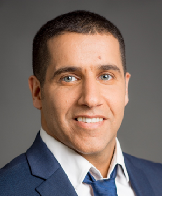by Shai Angel
“Let’s see who beats the market” is a common saying by investors, traders, money managers, and finance people. There is some sort of prestige for investors who successfully beat the market, and even more for those who have done it for several years and decades. The most well-known investors worldwide who manage to do so are Warren Buffet, Peter Lynch, and Monish Pabrai.
But is it necessary for an investor to have a goal to beat the market? Investing in the market index can be better than trying to beat the market over time.
Will you offer us a hand? Every gift, regardless of size, fuels our future.
Your critical contribution enables us to maintain our independence from shareholders or wealthy owners, allowing us to keep up reporting without bias. It means we can continue to make Jewish Business News available to everyone.
You can support us for as little as $1 via PayPal at office@jewishbusinessnews.com.
Thank you.
The world-renowned value investors highlighted numerous times in many media interviews, in their books, and in video conferences that investing in an index for a long period of time may, in some cases, be better than trying to find and allocate a specific stock to invest in. Especially for beginner investors and even for professional ones.
The simple reason is that history shows that the economy is growing despite financial crises, wars, etc., and technology is always improving and more efficient. Therefore, just invest directly in the economy.
But first, what is an index investment? Investing in indexes uses a process designed to mimic the performance of a particular market index. This strategy aims to produce returns that closely resemble the overall performance of a specific market sector, asset class, or the market as a whole.
After understanding the index investment, one must choose a specific market index as the benchmark. Common indices include the S&P 500, Dow Jones Industrial Average (DJIA), NASDAQ Composite, Russell 2000, and various bond indices.
The key parameters for an investor to get high returns from index investing are:
- Long-term investment
Index investment is irrelevant for an investor seeking high returns after 3 or 5 years. An index investment strategy is more relevant for an investor who can be as patient as he can and relate to this investment for a long period of time, such as 15 years or more. For the simple reason of compounding and the time it takes for the market to overcome crisis
- Patience
As mentioned in previous articles published by me, patience is the most important characteristic for an investor especially one who implies an index investment strategy. Don’t hesitant during a crisis, no matter how large it may seem.(Remember subprime and covid-19), the market has historically always bounced back and even higher.
- Low costs
The cost-effectiveness of index investing is one of its main benefits. When compared to actively managed funds, index funds and exchange-traded funds (ETFs) typically have cheaper operation and management costs. This is due to the methodical nature of the investing process, which eliminates the need for in-depth study or proactive management choices.
- Passive management
Since index funds are passively managed, choosing specific securities is not actively decided upon. The fund manager’s responsibility is to replicate the index composition and stay in line with the benchmark. Therefore, all you need to do is make the investment and just forget about it
- Compounding
As it is a magnificent tool for stock investing it is also a magnificent tool for index investing. Don’t just invest in the index and wait for 15 or 20 years. A strong and much better result you will get if on a monthly or quarterly basis, you reinvest in the index, and that will let the compounding effect work much stronger and better for you over time.
Now, after understanding index investment and its main characteristics that will help you get higher results, let’s take a closer look at the most common and preferable indexes to invest in:
- SPDR S&P500 ETF Trust (SPY)
This ETF tracks the performance of the S&P500 Index which consists of 500 large-cup U.S stocks.
- Invesco QQQ Trust (QQQ)
This ETF tracks the performance of the Nasdaq-100 Index which consists of 100 non-financial companies on the NASDAQ stock exchange.
- Vanguard FTSE Developed Markets ETF (VEA)
This ETF tracks the performance of All cap ex US index, which provides exposure to developed market stocks outside of the United States.
- Vanguard S&P500 ETF (VOO)
This ETF tracks the performance of the S&P500.
Investors who favor a cheap, diversified, and methodical approach to investing are fond of index investing. In contrast, active investing aims for fund managers to beat the market by choosing securities and timing the market. Depending on their investing goals and inclinations, investors can select one or a combination of these approaches, each of which has advantages.
 Shai Angel, CPA, the author, earned a master’s degree in law, a bachelor’s degree in accounting and economics, and a certificate in director training. He has previously held senior financial positions in well-known businesses. In his years of working in the financial industry, he has participated in the capital market and actively learned about “Value Investing” from some of the most prominent investors in the world, including Warren Buffett, Peter Linz, Monish Fabray, and others. He has also applied their investment strategies.
Shai Angel, CPA, the author, earned a master’s degree in law, a bachelor’s degree in accounting and economics, and a certificate in director training. He has previously held senior financial positions in well-known businesses. In his years of working in the financial industry, he has participated in the capital market and actively learned about “Value Investing” from some of the most prominent investors in the world, including Warren Buffett, Peter Linz, Monish Fabray, and others. He has also applied their investment strategies.




